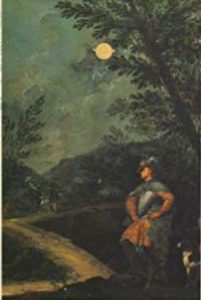Horoscopes have survived for over 2,000 years and represent a unique remnant of the ancient world. There is absolutely nothing else like them, as they symbolically represent the sky and are able to convey the events and experiences of a life. While we can use various techniques to progress or direct the chart into the future, the horoscope itself conveys the entire life.
In the contemporary west, we live in a world of linear time, where we adhere to schedules and see ourselves evolving into the future. Others in the past and elsewhere are different. In polychronic cultures, time is cyclic, and deadlines are unimportant. People from India that I’ve known seem to have a more polychronic attitude, for example, and interestingly enough many in India also value astrology. 
Astronomer and anthropologist Anthony Aveni gave an excellent example of polychronic works of art in his book, Conversing with the Planets. In a museum in Mexico City, he observed Aztec plant sculptures that contained both the mature fruit and blooming flowers – which cannot co-exist at the same time. “Each half of the calabash and maize sculptures seemed totally faithful to what I have actually seen in my garden at the beginning and the end of the season… But the artists who made these carvings just a few generations before Cortés landed on Mexico’s shore… had conflated different stages of plant metamorphosis into a single coherent image… for reasons that escape us, the polychromic image – the combination of realities pulled from different time frames and brought together by the human imagination into a composite whole – seems to have held greater significance.”
A horoscope can also be seen as a “composite whole.” And it’s worth noting that the Maya, who predated the Aztecs by at least 1,000 years, were keen sky observers who also had their own elaborate system of astrology.
One reason that astrology is commonly criticized today may be that mainstream western society is so time-driven, ordered and quantitative, while horoscopes and astrology are qualitative and cyclic. Those of us who value them are able to do so despite the linear culture that surrounds us.
Aveni’s Conversing with the Planets is a wonderful book that looks at the many cultures through history that developed astrology. It was published in 1992 as the Uranus-Neptune conjunction in Capricorn approached, and is one of the first books to seriously address the cultural history of astrology for a wider audience. Buy on Amazon.com:
Conversing with the Planets: How Science and Myth Invented the Cosmos
